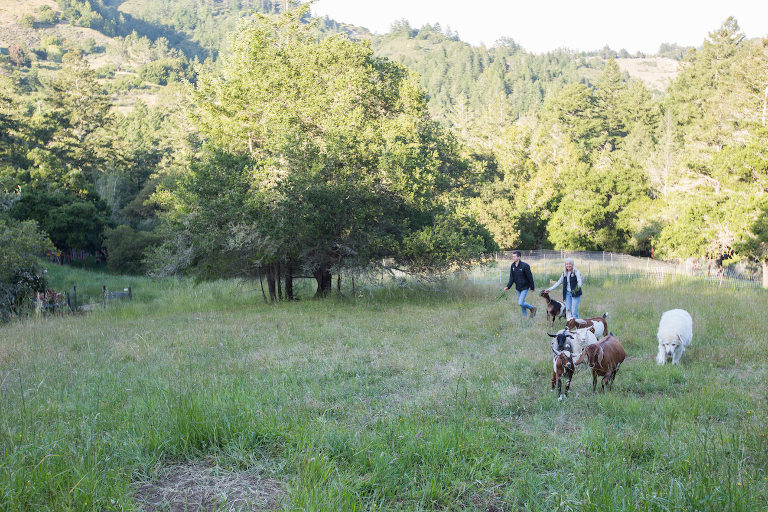Photographed by Noelle Gaberman
In the scenic Nicasio Valley of Marin County, Stone Steps Farm is a small, family farm breeding Pygora goats, mini Nubian goats, and Gotland sheep. Animals of all three breeds are friendly, gentle, and small enough to be handled and transported easily. Leigh, her husband John, and their sons care for the animals, including doing the milking and shearing themselves.
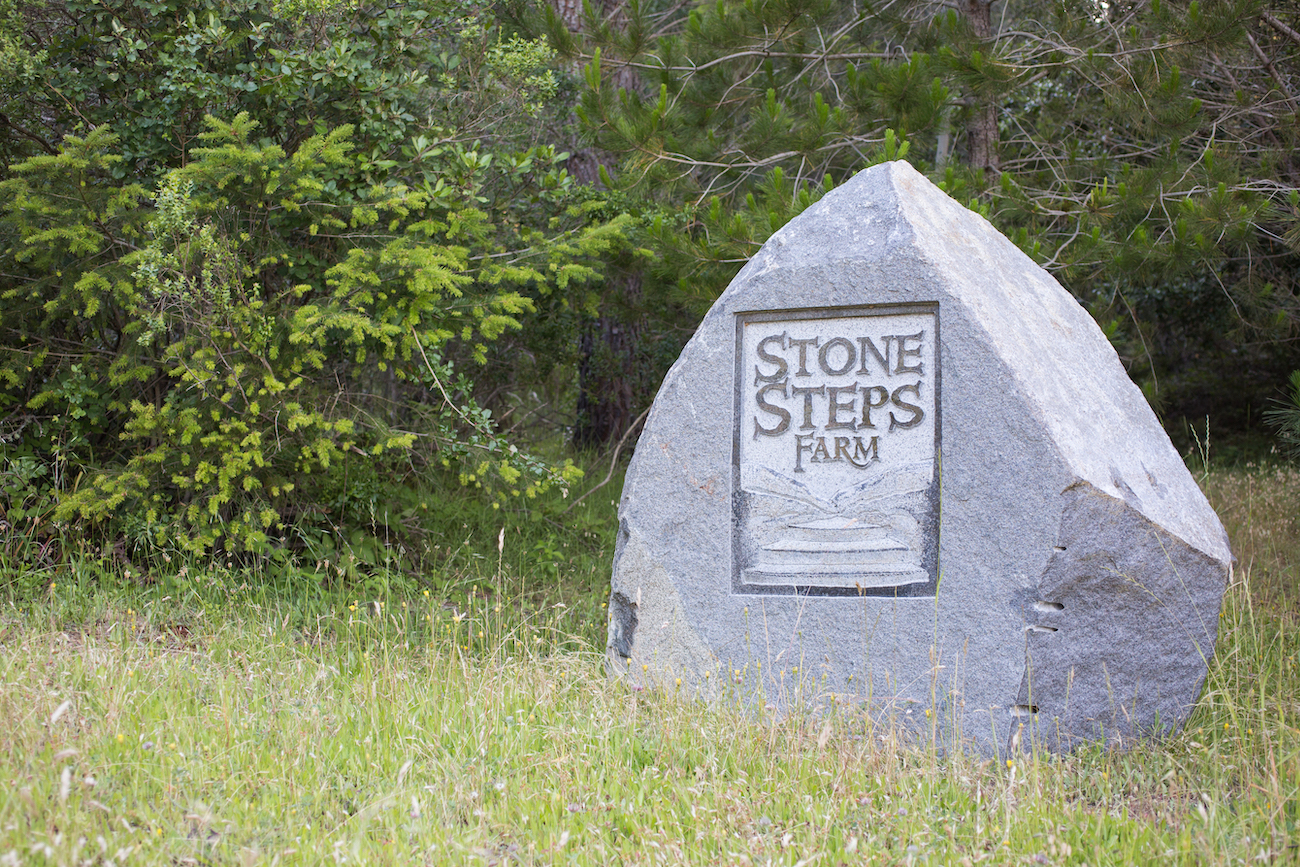
Pygora goats are a beautiful small breed of goat developed by crossing a pygmy goat with a white angora goat, a purposeful breeding cross which resulted in a small goat that produces a very fine long curly soft and luxurious fiber. Raised mainly for producing this fiber, Pygora fleece can be spun into a very fine soft luxurious yarn.
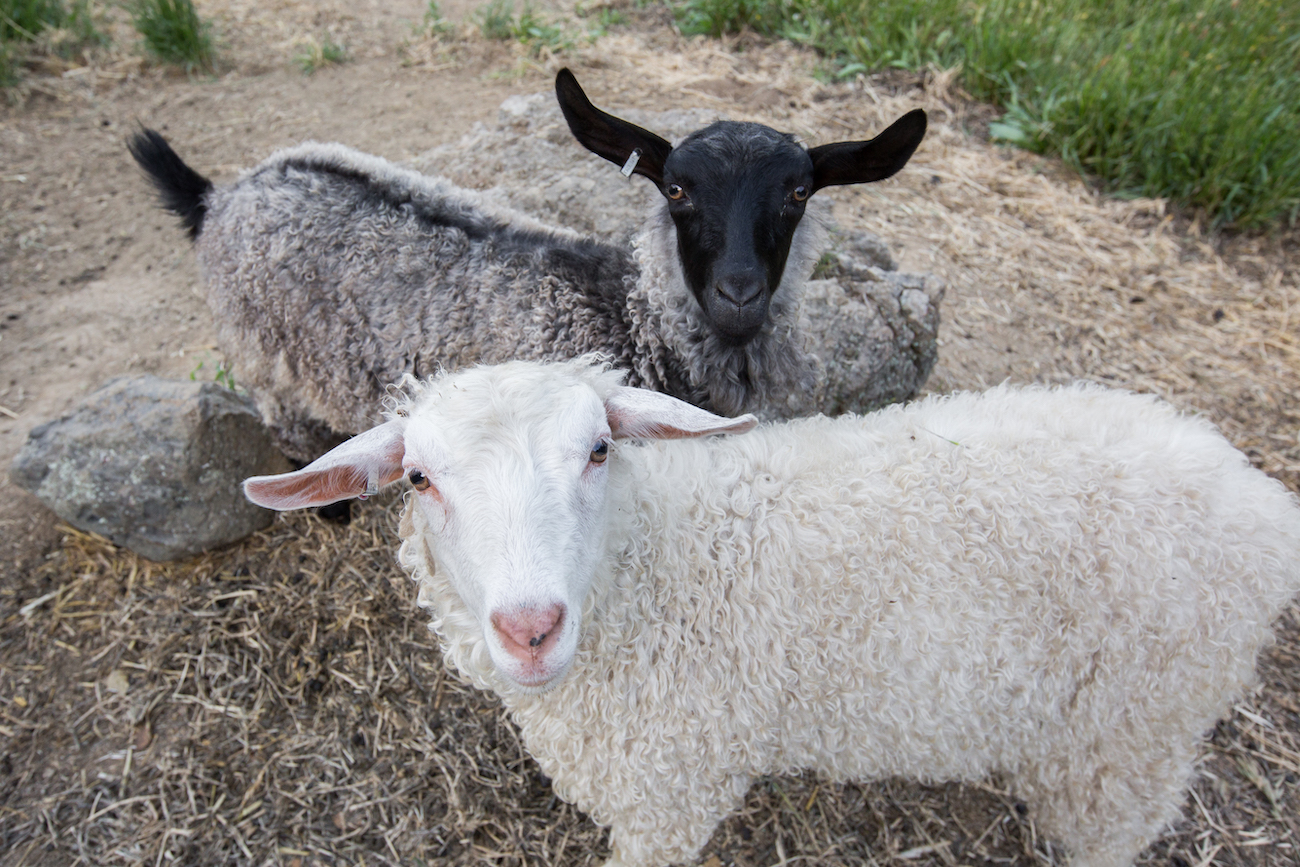
Mini Nubian goats are a small breed of dairy goat with highly efficient milk production and a very manageable size. At just 24-26 inches tall, they are easy to milk and produce excellent dairy used for cheese, yogurt, ice cream, caramels, fudge, and more.
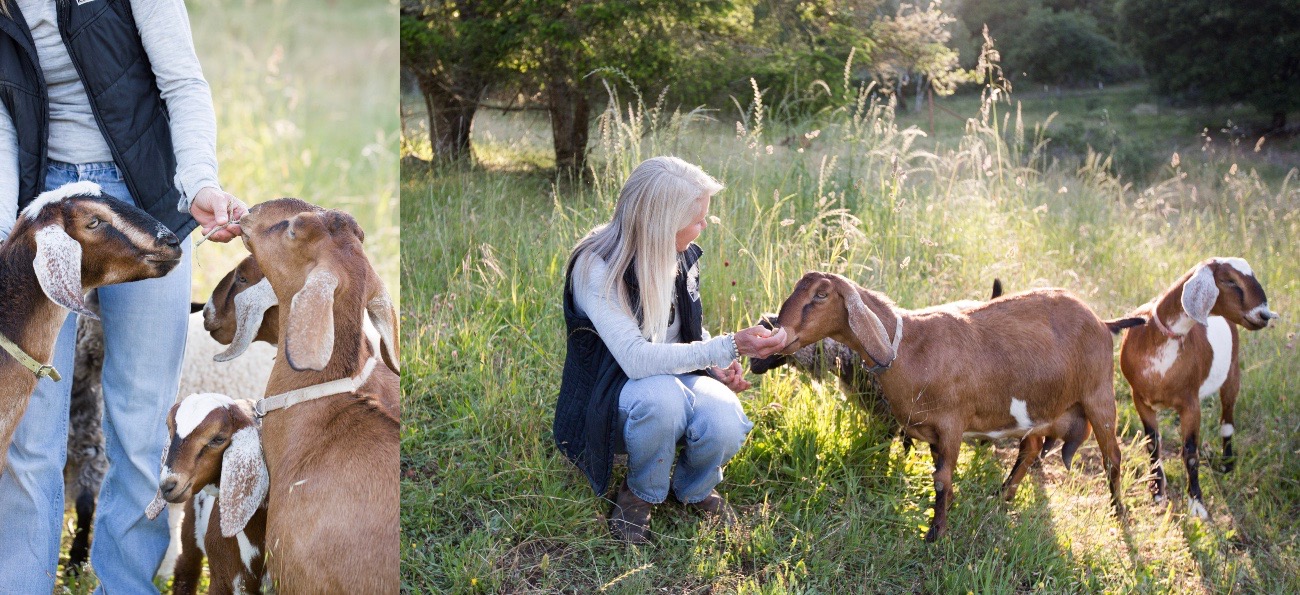
Gotland sheep are a small breed of Northern European, short-tailed sheep. Fine boned and naturally polled, they have no wool on their black heads and legs, but their fleece is fine, long, lustrous, and dense in natural shades of gray from silver to charcoal gray and dark enough to be almost black. The fleece has an even, defined curl and staple that is soft to the touch, and their disposition is docile and friendly.
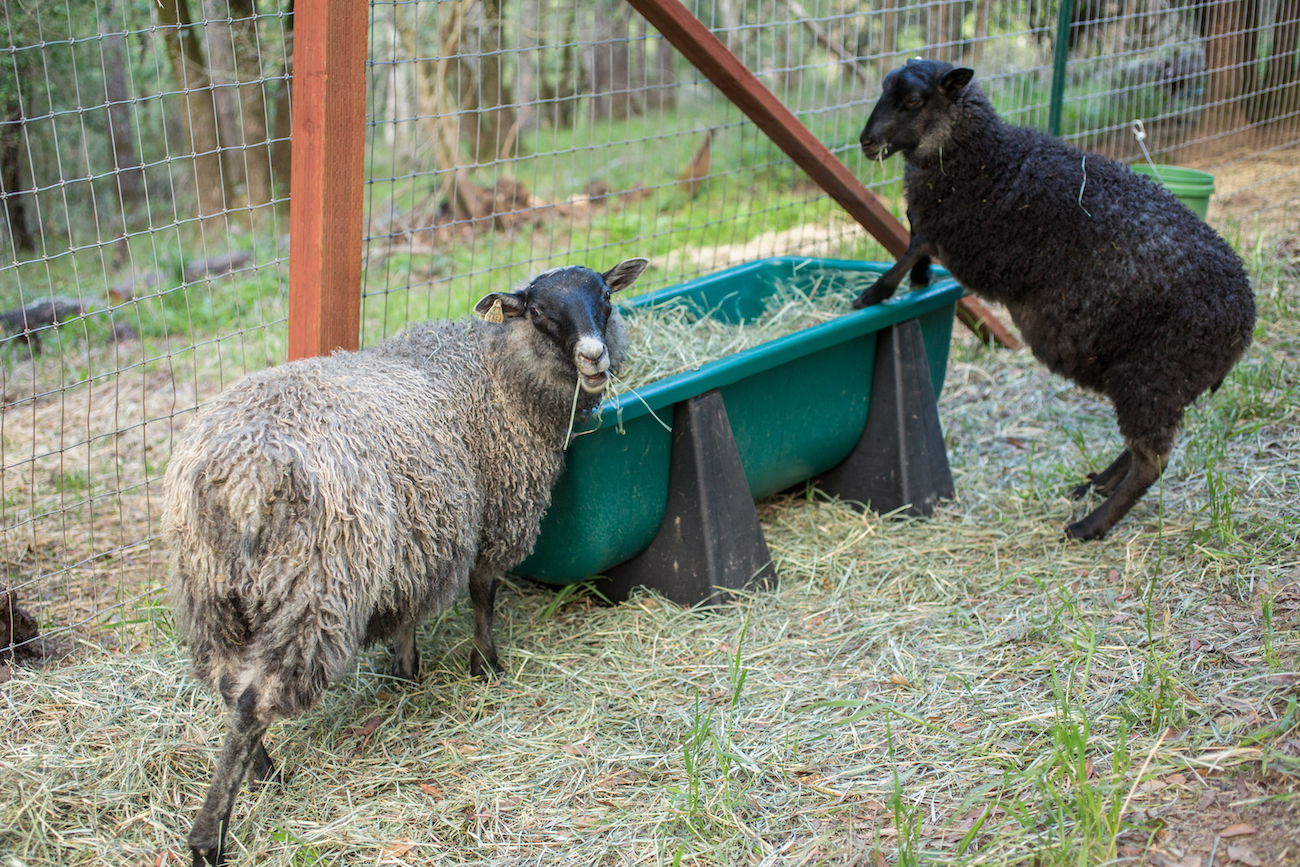
The land where Stone Steps Farm is located was formerly part of a large sheep ranch, Rancho Santa Margarita, and the family occasionally finds remnants of old barbed wire fencing. In the decades after the sheep ranch was sold and divided, the land where Stone Steps Farm sits was not grazed. Forested areas were choked with thick brush. The family, along with the goats and sheep, has worked hard to clear brush, open up the grassland under the beautiful oak trees, and restore the acreage to grazing land. They use portable electric net fencing to section off areas of the property, through which they move small groups of goats and sheep. Two Maremma sheepdogs protect the livestock, which is especially vulnerable at lambing and kidding time, and when clearing brush in heavily wooded areas.

The small goats and sheep are very easy on the land. Stone Steps Farm is participating in Fibershed’s soil sampling protocol, and the family hopes to implement grazing practices that sequester carbon and increase soil organic matter. They also aim to decrease wildfire risk by using their goats to clear brush that provides a fuel ladder, and by using their sheep to keep grasses down during fire season.
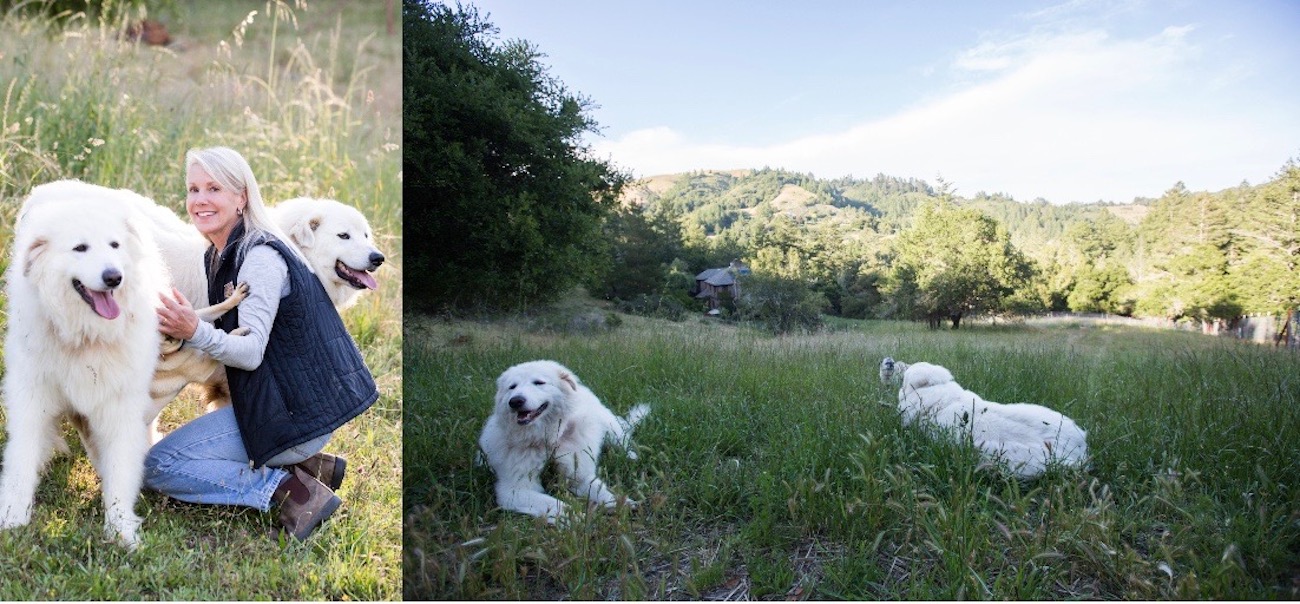
Leigh utilizes some of the fleeces to make felted fleece rugs that look very much like animal skins. The long natural locks of the fleece are felted into the base layer of felted wool. The advantage of Leigh’s technique of felting a base layer and then felting in the long locks of the fleece as she works creates a rug that looks like skin, but the animals do not need to be culled in the process.
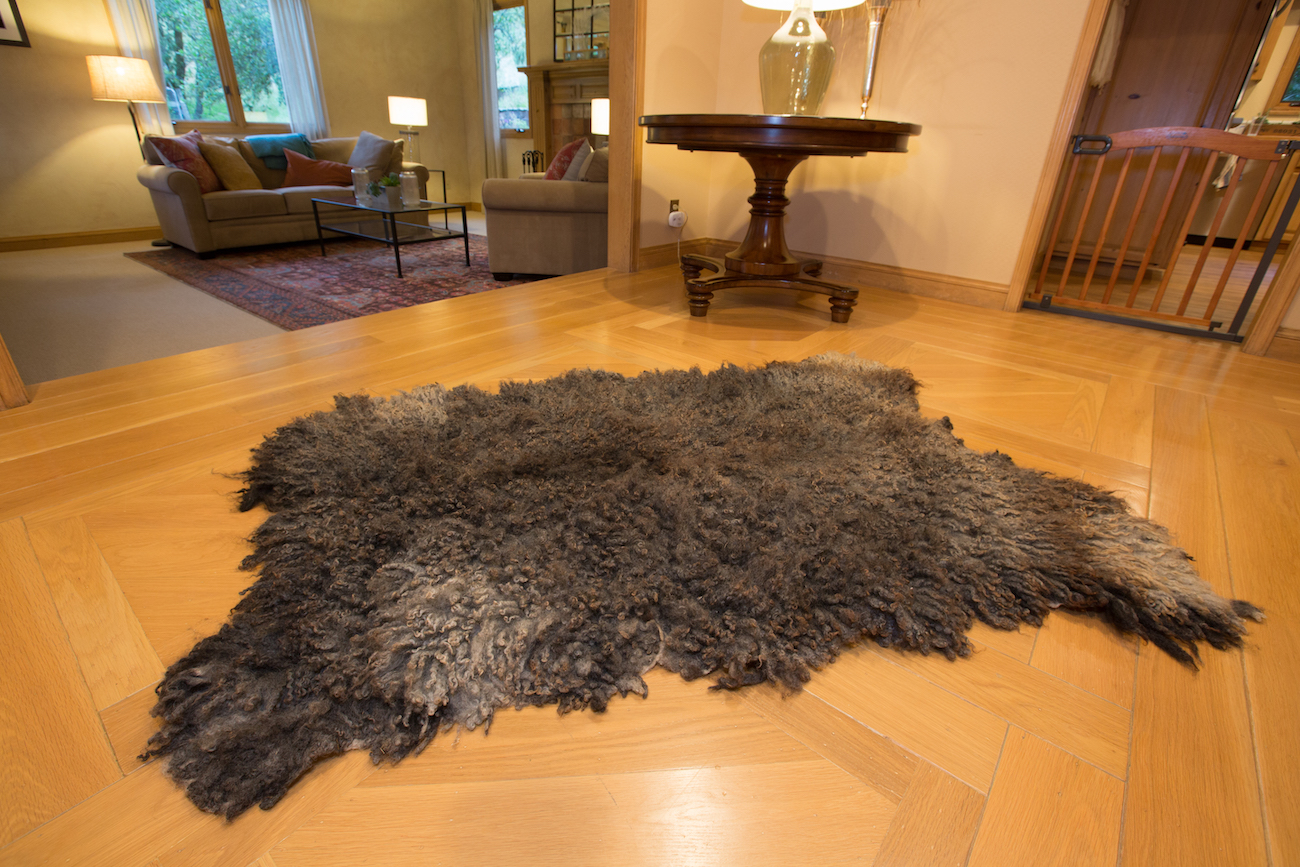
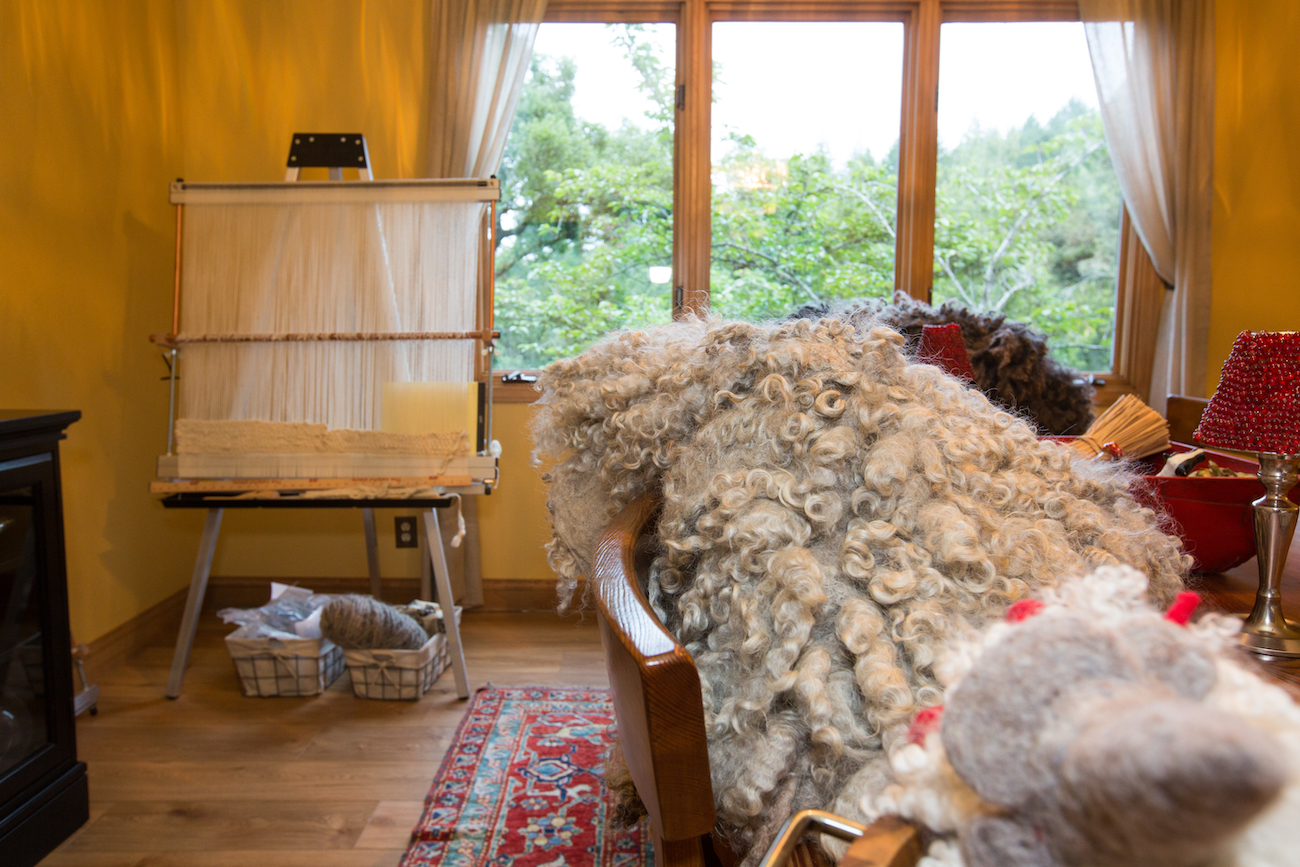
The strong and affectionate goat herd and flock of sheep are contributing to the restoration of land at Stone Steps Farm, with management maintained by a family that cares for the land, the animals, the fiber they produce and the affection that they share.
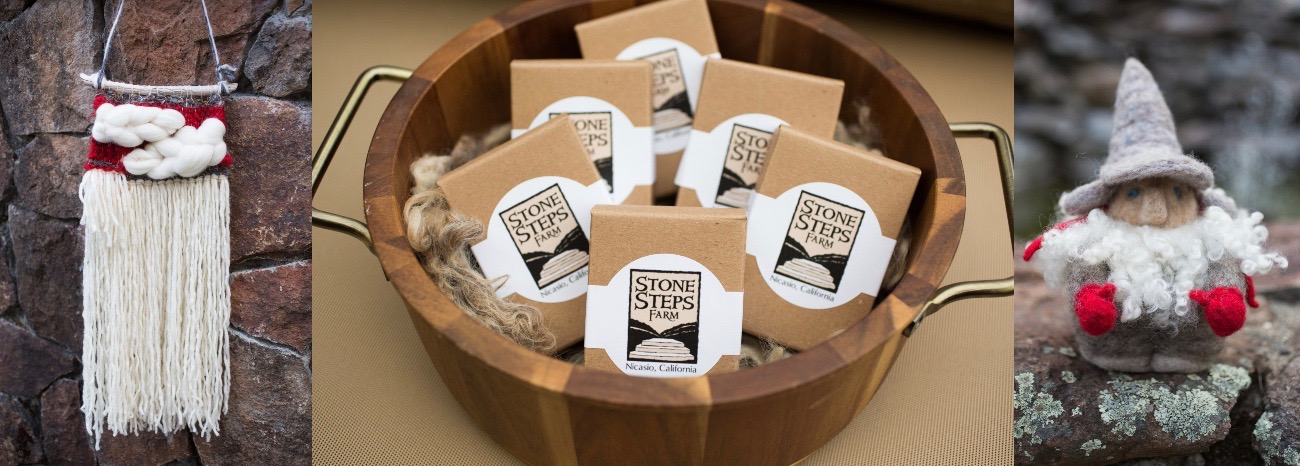
Learn more about Stone Steps Farm by visiting their website and Instagram account.


